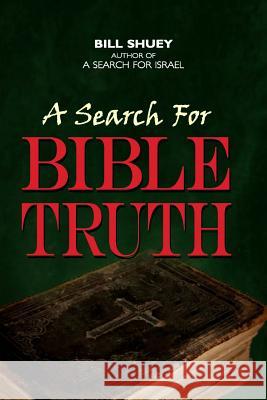A Search for Bible Truth » książka
A Search for Bible Truth
ISBN-13: 9781503157767 / Angielski / Miękka / 2014 / 210 str.
Prior to the advent of the Gutenberg printing press in 1450 all manuscripts and books were handwritten. Copies were made by scribes who possessed differing levels of literacy and competence. The earlier a copy was made the more likely that the copyist was semi-literate and prone to make mistakes in the reproduction of a given document. Also some revisions were made to early scripture manuscripts in order to force them to comply with church policies and teachings. Literally thousands of handwritten manuscripts of ancient biblical scripture exist. In these documents, thousands of variances in wording can be observed. So many variances exist that the alterations amongst these documents actually exceed the total number of words contained within the New Testament. The conviction that the Bible is inerrant is a fairly late development within the Christian religion. Prior to the early 19th century it would have been difficult to find any reliable Bible scholar who would suggest that the scriptures are free from error. This inerrancy notion has caught the imagination of Christian adherents in this era and has gained widespread acceptance as fact. Most Christians do not devote significant time in Bible study and have no idea of the origins of Christianity or the words that they read in their Bibles. Most people simply are not aware of the countless conflations, inconsistencies, and errors found within the sacred work. Drawing upon the gospel writer of John's suggestion that the truth would set us free, I decided to document just a sampling of the problems that one can find in modern Bibles. If you wish to be more informed regarding the Bible, you now can through reading A Search for Bible Truth. If you place your spiritual hopes and aspirations upon The Book, you now have the opportunity to discover an eye-opening and deeper understanding of the Bible.
Zawartość książki może nie spełniać oczekiwań – reklamacje nie obejmują treści, która mogła nie być redakcyjnie ani merytorycznie opracowana.











